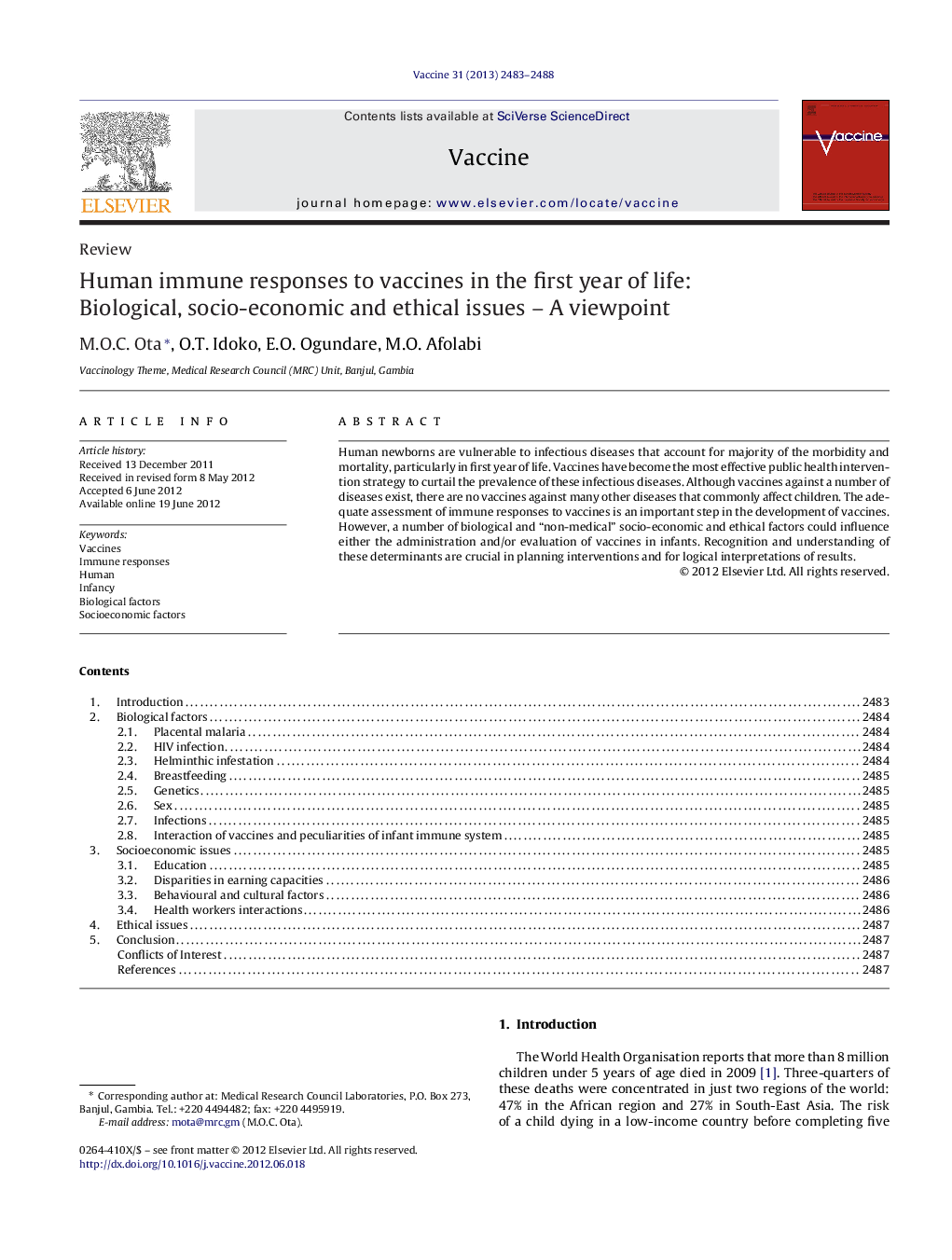| Article ID | Journal | Published Year | Pages | File Type |
|---|---|---|---|---|
| 2403056 | Vaccine | 2013 | 6 Pages |
Human newborns are vulnerable to infectious diseases that account for majority of the morbidity and mortality, particularly in first year of life. Vaccines have become the most effective public health intervention strategy to curtail the prevalence of these infectious diseases. Although vaccines against a number of diseases exist, there are no vaccines against many other diseases that commonly affect children. The adequate assessment of immune responses to vaccines is an important step in the development of vaccines. However, a number of biological and “non-medical” socio-economic and ethical factors could influence either the administration and/or evaluation of vaccines in infants. Recognition and understanding of these determinants are crucial in planning interventions and for logical interpretations of results.
► Biological factors that affect the magnitude and quality of immune responses to vaccines. ► Socioeconomic factors that limit vaccine accessibility and evaluation. ► Strategies for circumventing these limitations in developing vaccines and evaluation of their immune responses.
